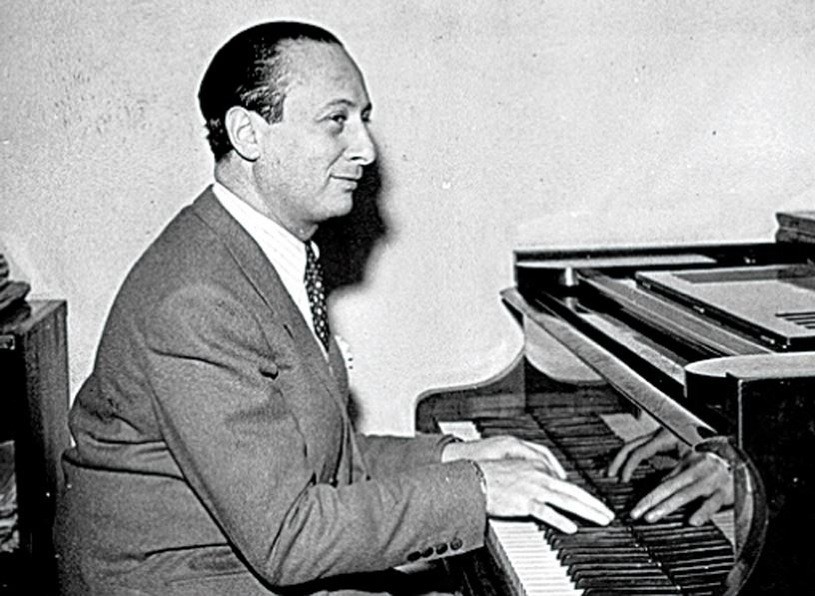
Władysław Szpilman: Pianist of the Warsaw Ghetto
by Brianna Jaeger, Catoctin School of Music
It’s Autumn 1939.
The Wizard of Oz, featuring Judy Garland, premieres.
LaGuardia Airport is unveiled in New York City.
“You Are My Sunshine” is recorded for the first time.
Concert pianist and composer Władysław Szpilman is performing a Chopin recital broadcasted for Polish Radio on September 23rd. In the background rings something percussive. Violent. Abhorrent. Harshly punctuating the lyricism of Poland’s beloved composer – bombs are exploding.
Adolf Hitler has invaded Poland.
In his memoir, Szpilman writes, “I could hardly hear the sound of my own piano in the deafening roar.” The rest of the world watched as the Third Reich infiltrated Europe. Life moved on for many people across the globe. However, for Szpilman and other Polish Jews of Warsaw, the course of destiny had been altered. In the middle of Chopin’s Nocturne in C# Minor, a bomb struck the building of Polish Radio, and Szpilman was forced to evacuate.
Shortly thereafter, he and his immediate family, alongside thousands of other Jewish inhabitants, were pushed into the Warsaw ghetto, isolated from the rest of the world. Here, they were forced to engage in manual labor, constructing housing for Nazi occupants, coerced into creating art for propaganda materials, and exiled for being what the German papers declared, “a social parasite”. In short – vile acts of antisemitism.
The Szpilman family struggled to support themselves, daily facing starvation and their own mortality. Escape was impossible; those who were caught attempting freedom were killed. However, all inhabitants of the ghetto would soon meet a similar fate – in 1942, mass deportations to Treblinka began. After arriving at the internment camp, the prisoners would ultimately be murdered in the gas chambers, obliterating nearly every Polish Jew in Warsaw. Eventually, the Szpilman family was called for their turn. They boarded the train. And then a miracle happened – an unseen hand reached out and pulled Władysław away. While his family was deported, Władysław fled.
For the next three years, he wandered in hiding, living in bomb-shattered ruins, surviving solely on the mercy of strangers to feed and shelter him. In 1945, on the brink of liberation, Władysław was discovered by a Nazi officer. The officer asked his occupation. “Pianist,” he replied. The man led Szpilman to a piano, requesting a performance. After three years of exile from humanity and his beloved instrument, Władysław began playing the same Chopin Nocturne he performed on air in 1939. The officer recognized him as Jewish, but made the choice to spare his life, providing Władysław with food, clothing, and protection to help him survive. Before walking away, Szpilman grasped the man’s hand and said,
“I never told you my name; you didn’t ask me, but I want you to remember it. Who knows what may happen? You have a long way to go, to get home. If I survive, I’ll certainly be working for Polish radio again. If anything happens to you, if I can help you then in any way, remember my name, Szpilman, Polish radio.”
The officer’s name was Wilhelm Hosenfeld, and he died in a Soviet prisoner of war camp. Although he may have served in the Third Reich, in a moment, without a thought for his own safety, he spared a life. Because of his kindness, Szpilman survived the war. After the war ended, he resumed his performing career on Polish Radio, composing, and touring as an acclaimed concert artist until his death in 2000.
http://https://www.youtube.com/watch?v=zIcjkE3XlBA
On a personal note, I want to share his Mazurka for Piano, written during his imprisonment in the Warsaw Ghetto. If you are familiar with Chopin, you might recognize the compositional similarities! The piece is set in the key of F minor, however, what stands out to me is the parallel between Szpilman’s use of accidentals and the Jewish prayer ‘Ahava rabbah’ (set in a modal scale), which roughly translates to “With Abundant Love”. To find peace, solace, shalom, in unfathomable circumstances is extraordinary, and I pray that each of us may also experience consolation in the arduous seasons we face.
